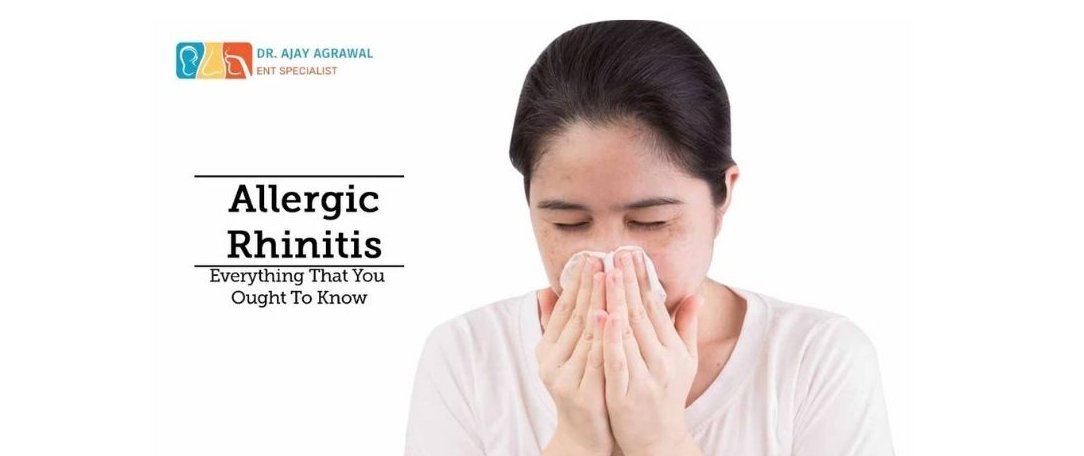Allergic Rhinitis
Understanding Allergic Rhinitis: Causes, Symptoms, and Effective Treatments by Dr. Ajay Agrawal. Get the best Allergy Rhinitis treatment in Indore.
What Causes Allergic Rhinitis?
Allergic rhinitis arises when your immune system reacts excessively to airborne particles, known as allergens, that you inhale. This reaction prompts the release of chemicals such as histamine, which then triggers the symptoms associated with allergic rhinitis. Common triggers for this condition include:

Pollen
From trees, grass, and weeds.
Dust Mites
Tiny creatures that live in house dust.
Mold
Fungi that thrive in wet environments.
Animal Dander
Tiny flakes of skin or hair from animals with fur or feathers.
Cockroach Droppings
Can also trigger allergic reactions.
Symptoms of Allergic Rhinitis
Runny or Stuffy Nose
This can be clear, thin discharge or thick and colored.
Sneezing
Often occurs in clusters.
Itchy Eyes, Nose, Ears, and Throat
Irritation that prompts scratching.
Watering Eyes
Due to irritation by allergens.
Reduced Sense of Smell or Taste
Nasal congestion can block odors.
Complications of Untreated Allergic Rhinitis
Middle Ear Dysfunction
This can cause a feeling of fullness in the ears and hearing problems.
Sinus Infections
Both acute and chronic sinusitis can develop.
Ear Infections
Particularly common in children.
Sleep Disturbances
Including difficulty falling asleep and sleep apnea.
Dental Issues
Mouth breathing can lead to a dry mouth, increasing the risk of cavities and gum disease.
Managing and Treating Allergic Rhinitis - By ENT Specialist in Indore
Allergen Avoidance
• Stay Indoors: Especially on windy days or during high pollen counts.
• Use Air Purifiers: Helps reduce indoor allergens like dust and pet dander.
• Clean Regularly: Reduce dust and mold in the home.
Medications
• Antihistamines: Help relieve sneezing, itchiness, and runny nose.
• Decongestants: Useful for short-term relief of nasal stuffiness.
• Nasal Corticosteroids: Sprays designed to reduce inflammation and treat nasal symptoms effectively.
• Saline Nasal Rinses: Clears irritants and allergens from nasal passages.
Medical Treatments
• Immunotherapy: Allergy shots or tablets that can desensitize your immune system to specific allergens over time.
• Consultation with a Healthcare Provider: Especially if symptoms are severe or medications do not provide relief.
Allergic rhinitis is more than a seasonal annoyance; it’s a chronic condition that can greatly affect your daily life. Understanding its triggers and symptoms is essential for taking proactive measures to manage the condition and enhance your quality of life. If you think you might have allergic rhinitis, consult an ENT doctor to develop a personalized treatment plan tailored to your needs.
Understanding and managing allergic rhinitis effectively can help minimize its impact, allowing you to lead a more comfortable and productive life. Don’t let hay fever hold you back — take control of your symptoms today!






